On the afternoon of September 29, under the chairmanship of Vice Chairwoman of the National Assembly Nguyen Thi Thanh, the conference discussed draft laws in the cultural and social fields, including: draft law amending and supplementing a number of articles of the Law on Education ; draft law on higher education (amended); draft law on vocational education (amended) and draft law on drug prevention and control (amended).
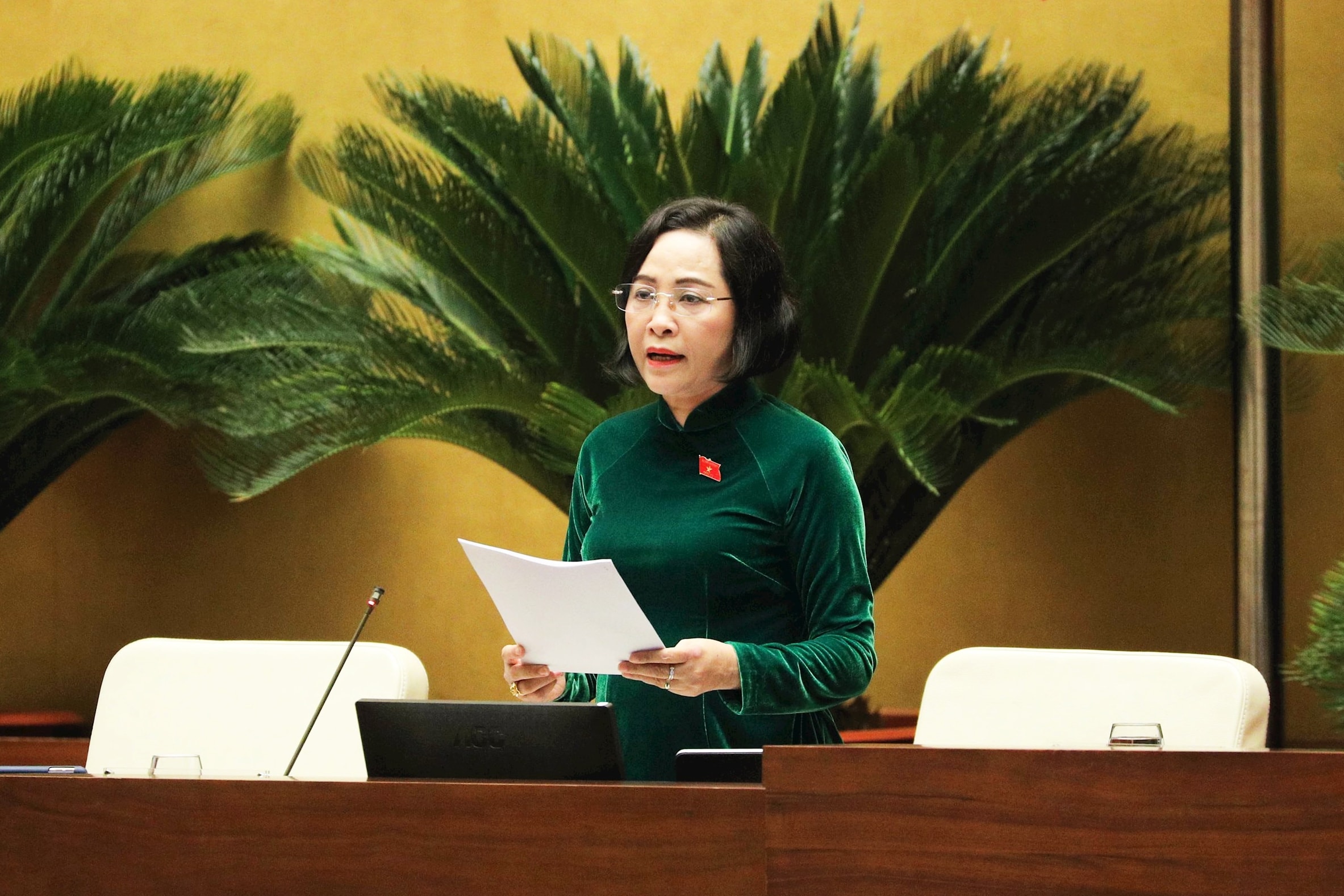
Strengthening the role and responsibility of local authorities in student streaming
Concerned about the draft Law amending and supplementing a number of articles of the Law on Education, National Assembly Deputy Nguyen Thi Suu ( Hue City) noted that, regarding the structure of the national education system, the draft Law has added vocational secondary school to vocational education. This content is added reasonably, in the direction of international integration. However, it is necessary to clarify the criteria and output standards between vocational secondary school and secondary school, to avoid duplication and difficulties in streamlining and transition.
Delegate Nguyen Thi Suu proposed assigning the Ministry of Education and Training to regulate standards, output standard programs, and levels in vocational education, ensuring transparency and distinguishing between vocational secondary schools and intermediate schools.
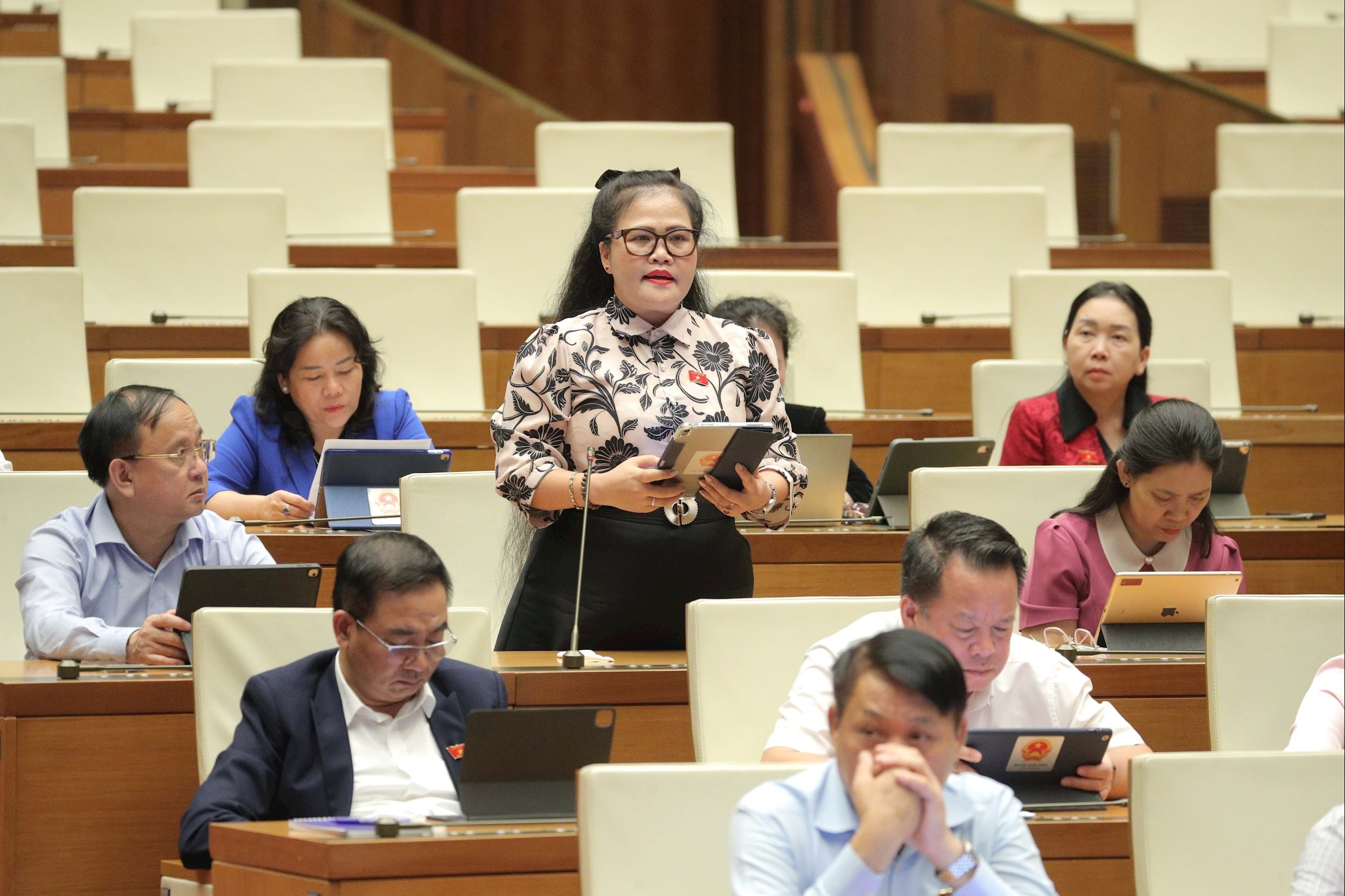
National Assembly Deputy Dang Thi My Huong (Khanh Hoa) paid attention to the work of student orientation after middle school and high school; said that this is one of the strategic tasks to structure human resources, meet career needs, and develop the local and national economy and society.
According to the delegate, Clause 2, Article 9 of the draft Law has amended and supplemented regulations on career guidance and streaming in education, clearly showing that the goal of streaming is career guidance, suitable to the capacity, strengths and talents of learners and regulating the labor structure according to the requirements of national development... However, this regulation is still general and general.
To improve the quality and effectiveness of education streaming, delegates suggested that it is necessary to have clearer regulations on career guidance implementation in accordance with students' talents, strengths and abilities from preschool and primary education, not just stopping at middle and high school. Career guidance should be implemented at each level of education.
Along with that, it is necessary to study and supplement regulations on coordination and responsibilities for cooperation with independent career guidance organizations and career counseling organizations... to support students and parents with more information and advice to help them choose the right career.
The drafting agency needs to review and consider supplementing regulations on career orientation for gifted students, students from ethnic minority and mountainous areas, areas with difficult socio-economic conditions, and other students.
Delegates recommended that it is necessary to review and supplement regulations from Articles 61 to 65, and study special policy regulations to support the above-mentioned student groups in streaming and choosing suitable careers.
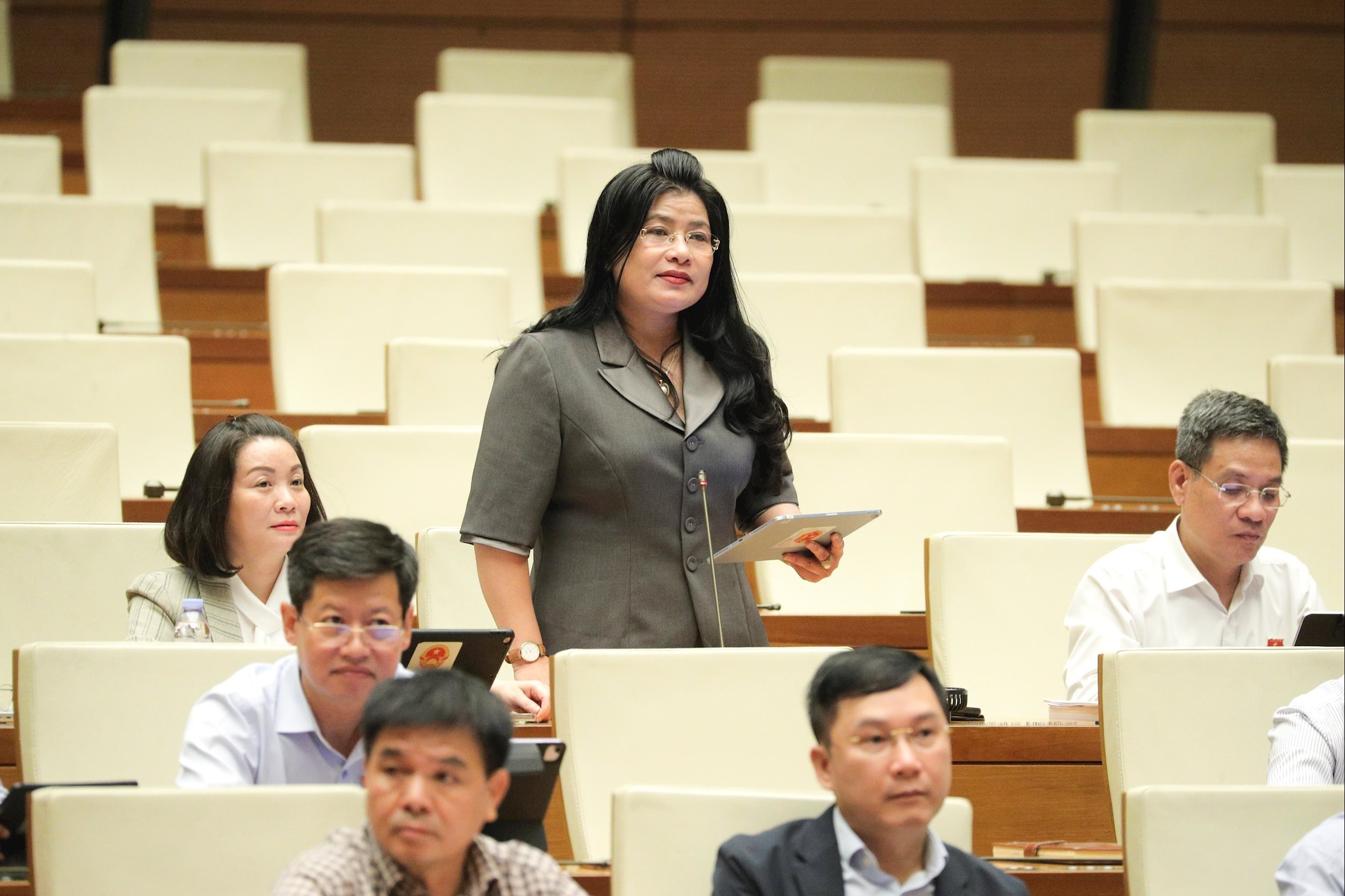
Delegates also said that the role and responsibility of local authorities in student streaming should be strengthened. Specifically, in Article 105, the draft law needs to more clearly stipulate the responsibilities of provincial and commune-level People's Committees in leading and directing student streaming in accordance with local and regional labor needs; linking streaming with the digital labor market. Regulating the need to build a data system on local streaming and periodically report to the Ministry of Education and Training.
Delegate Dang Thi My Huong also proposed that it is necessary to study the integration of digital technology in the streaming system; it is possible to build a system to assess students' abilities, provide career counseling through a digital platform, and build a national database on students' abilities and interests to support effective streaming. This database needs to be linked between the Ministry of Education and Training, localities, vocational training institutions and businesses to serve as a basis for streaming...
At the same time, the draft Law must have provisions on protecting student data during the collection, analysis and streaming process. Clearly stipulate the mechanism for managing, exploiting and sharing data to avoid abuse or privacy violations. The State needs to have its own financial policy for digital transformation in streaming work.
With the addition of the above regulations, delegate Dang Thi My Huong emphasized, "student streaming will not only be a policy but will become a digital, transparent, responsible process, closely linking education - family - locality - labor market".
Commune-level police receive and support voluntary drug addicts in rehabilitation.
Commenting on the draft Law on Drug Prevention and Control (amended), National Assembly Delegate Nguyen Thi Thu Ha (Quang Ninh) stated that in Clause 3, Article 33, the draft Law stipulates that "The Director of the Provincial Police Department decides to send drug addicts to voluntary drug rehabilitation at public drug rehabilitation facilities or reform schools".
The delegate said that the use of the phrase “sending addicts to voluntary drug rehabilitation” is not appropriate. Because the nature of voluntary drug rehabilitation includes many forms, including Methadone substitution treatment which is a “civil contract” in nature, and is voluntary between two parties (addicts and voluntary drug rehabilitation service providers).
In addition, assigning the Provincial Police Director to decide on this matter is not appropriate to the nature and extent of the incident. If implemented as in the draft Law, each case of voluntary drug addiction treatment registration will take at least 2-3 days to enter the facility, during which time, without management sanctions, it is very easy for escapes to occur, causing many difficulties for the authorities.
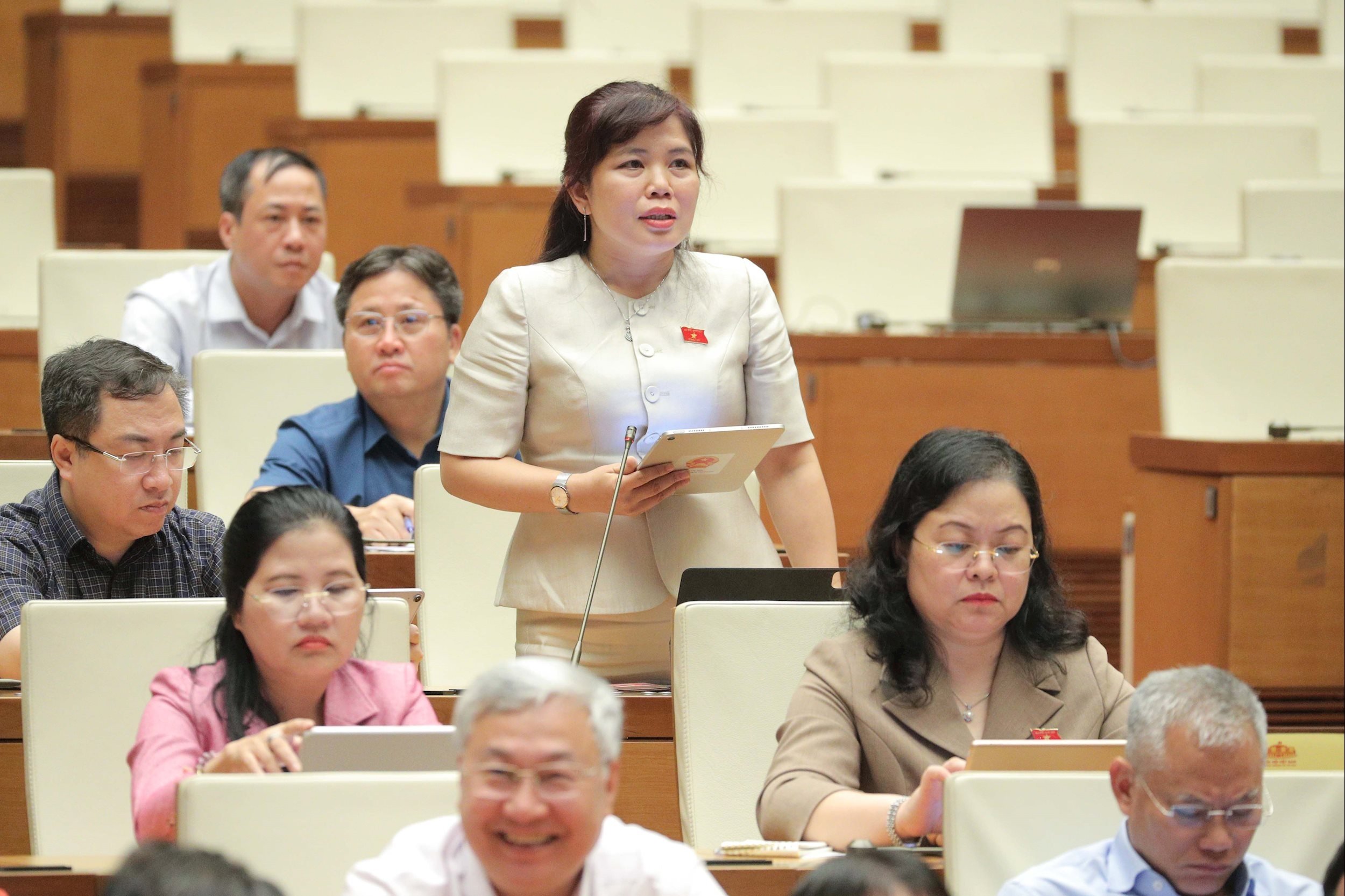
Delegates proposed that it should be regulated that commune-level police receive and support drug addicts to voluntarily undergo drug rehabilitation at public drug rehabilitation facilities and reform schools.
In Clause 1, Article 36, the draft Law on enforcement of decisions to send to drug rehabilitation facilities stipulates that "within 24 hours from the time the Commune-level Police organize the enforcement of the decision, the Provincial-level Police are responsible for organizing the transfer of drug addicts to public drug rehabilitation facilities (for voluntary rehabilitation)".
Delegate Nguyen Thi Thu Ha noted that such a regulation is unreasonable, the nature of voluntary drug rehabilitation is that the addict voluntarily undergoes drug rehabilitation. The regulation and mobilization of many forces to participate in the nature of "escorting" leads to a situation that is not true to its nature, causing great (unnecessary) pressure on the forces, especially at the provincial level of police.
Regarding the management of illegal drug users, addicts, and post-rehabilitation drug addicts, delegates agreed that the draft Law stipulates that the Commune Police is the presiding unit. However, it is necessary to clarify the content on consulting with the Commune People's Committee and coordinating with relevant commune-level departments and units.
Delegate Nguyen Thi Thu Ha analyzed that the management of drug addicts and post-rehabilitation drug addicts requires the participation of many units, organizations, and individuals, especially socio-political organizations, village/area chiefs, and local people; Commune-level police do not have enough authority to direct, urge, and assign responsibilities to all of these forces.
"If these contents are transferred to the police force to preside over and directly carry out educational and management activities and measures, it will easily cause the police force to be "outsourced". Moreover, this content has been clearly stated in Conclusion No. 132-KL/TW dated March 18, 2025 of the Politburo on continuing to implement Directive 36-CT/TW of the Politburo on strengthening and improving the effectiveness of drug prevention, control and combat", delegate Nguyen Thi Thu Ha noted.
Concluding the discussion, Vice Chairwoman of the National Assembly Nguyen Thi Thanh stated that full-time National Assembly deputies spoke enthusiastically and frankly, with a spirit of high responsibility, clear viewpoints, profound, comprehensive and multi-dimensional arguments, making practical contributions to continue perfecting and improving the quality of draft laws in terms of content, regulations and legislative techniques.
Source: https://daibieunhandan.vn/hoi-nghi-dbqh-hoat-dong-chuyen-trach-lan-thu-8-dua-phan-luong-hoc-sinh-tro-thanh-quy-trinh-so-minh-bach-trach-nhiem-10388439.html


![[Photo] Many streets in Hanoi were flooded due to the effects of storm Bualoi](https://vphoto.vietnam.vn/thumb/1200x675/vietnam/resource/IMAGE/2025/9/29/18b658aa0fa2495c927ade4bbe0096df)


![[Photo] National Assembly Chairman Tran Thanh Man chairs the 8th Conference of full-time National Assembly deputies](https://vphoto.vietnam.vn/thumb/1200x675/vietnam/resource/IMAGE/2025/9/29/2c21459bc38d44ffaacd679ab9a0477c)
![[Photo] General Secretary To Lam receives US Ambassador to Vietnam Marc Knapper](https://vphoto.vietnam.vn/thumb/1200x675/vietnam/resource/IMAGE/2025/9/29/c8fd0761aa184da7814aee57d87c49b3)
![[Photo] General Secretary To Lam attends the ceremony to celebrate the 80th anniversary of the post and telecommunications sector and the 66th anniversary of the science and technology sector.](https://vphoto.vietnam.vn/thumb/1200x675/vietnam/resource/IMAGE/2025/9/29/8e86b39b8fe44121a2b14a031f4cef46)
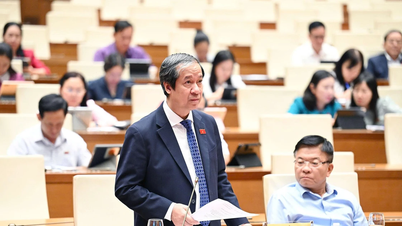

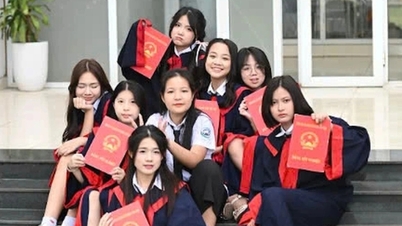

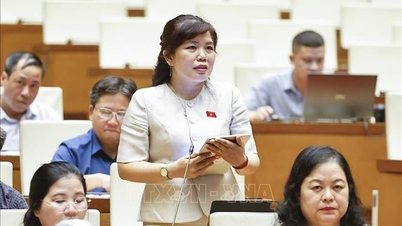






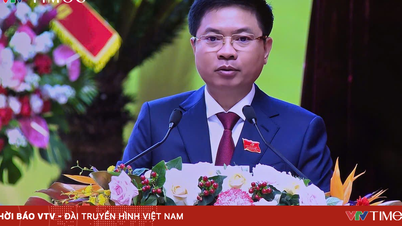




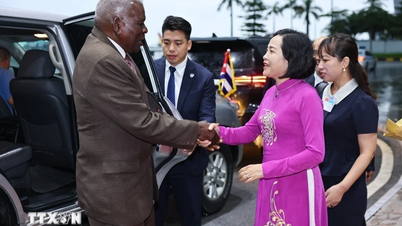
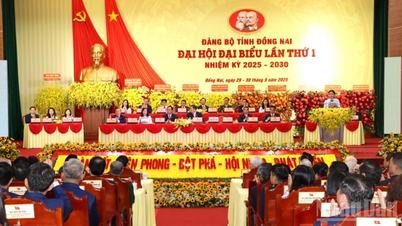







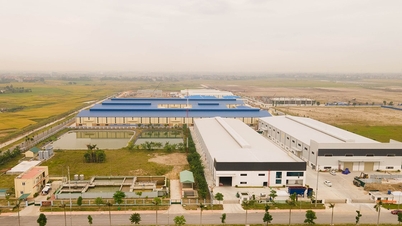
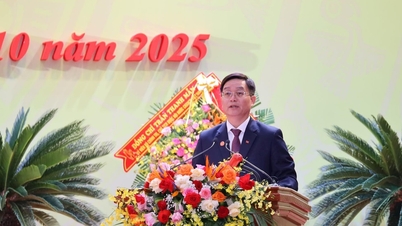

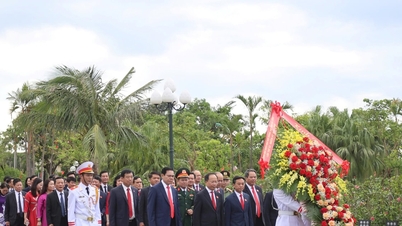

































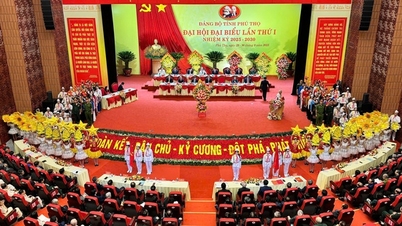

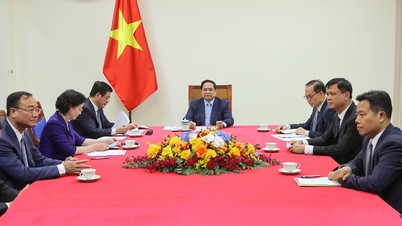




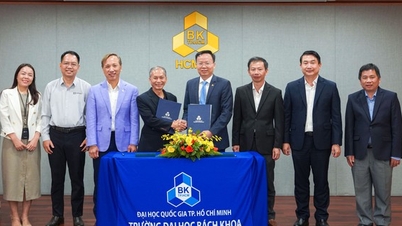





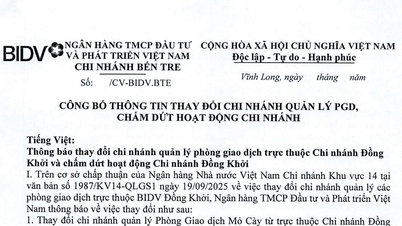

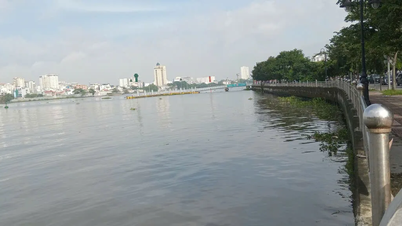
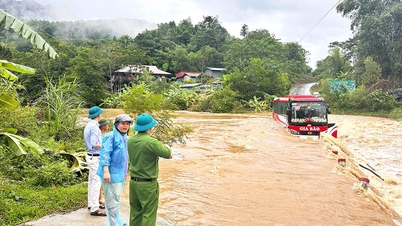

















Comment (0)